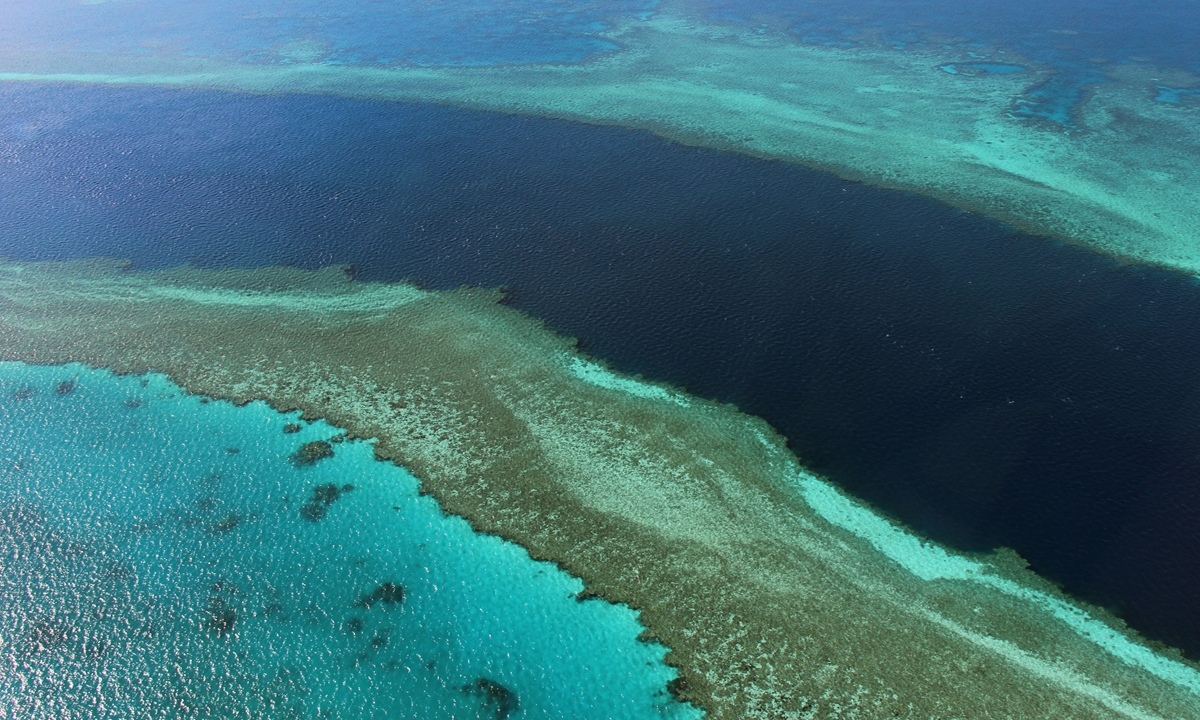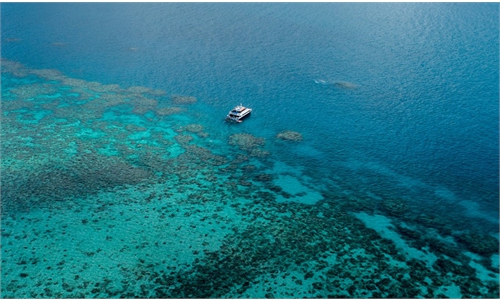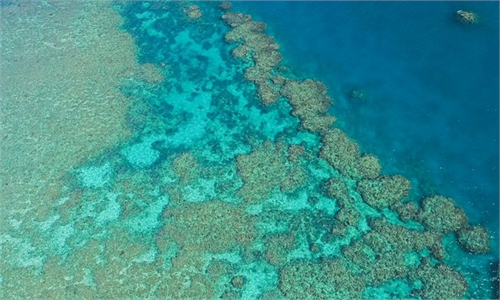
This photo taken on November 20, 2014 shows an aerial view of the Great Barrier Reef off the coast of the Whitsunday Islands, along the central coast of Queensland, Australia. Photos: AFP
Australia's Great Barrier Reef should be added to a list of "in danger" World Heritage sites, according to UN experts who warned the fading wonder has been "significantly impacted" by climate change.A UNESCO-tasked report said on Monday warming seas and agricultural pollution had put the reef at risk and that its resilience had been "substantially compromised."
The Great Barrier Reef is one of Australia's premier tourist drawcards and putting it on the in-danger list could substantially tarnish its allure for international visitors.
UNESCO considered listing the reef after a damning report in 2021 but held off following intense lobbying from Australia's previous conservative government. It first raised the alarm about the reef's deterioration in 2010.
The Australian Marine Conservation Society said the reef supported 60,000 jobs and generated Aus$6 billion ($4 billion) in revenue every year.
Australian Environment Minister Tanya Plibersek acknowledged the reef was under threat but said putting it on UNESCO's "World Heritage in Danger" list would be a step too far.
"We'll clearly make the point to UNESCO that there is no need to single the Great Barrier Reef out in this way," she told reporters. "If this World Heritage Site is in danger, then most World Heritage Sites around the world are in danger from climate change."
World Wildlife Fund spokesperson Richard Leck said the UNESCO recommendations should be accepted by the government.
"These UNESCO recommendations are a reminder it is our choice to give the world's most iconic reef the best chance of survival," he said.
Marine biologist Jodie Rummer said the UNESCO report showed Australia had more work to do.
"Our action now will determine the frequency and severity of marine heat waves the reef will face over the coming years," she said.
The report, written by experts from the International Union for Conservation of Nature and UNESCO, acknowledged Australia's commitment to protecting the reef.
But it found that despite the "unparalleled science and management efforts," the reef still faced "considerable pressures" linked to climate change and pollution from agricultural runoff.
Australian scientists reported in May that 91 percent of the reef's coral had been damaged by bleaching after a prolonged summer heat wave.
It was the first time on record the reef had suffered bleaching during a La Nina weather cycle, when cooler ocean temperatures would normally be expected.
AFP


